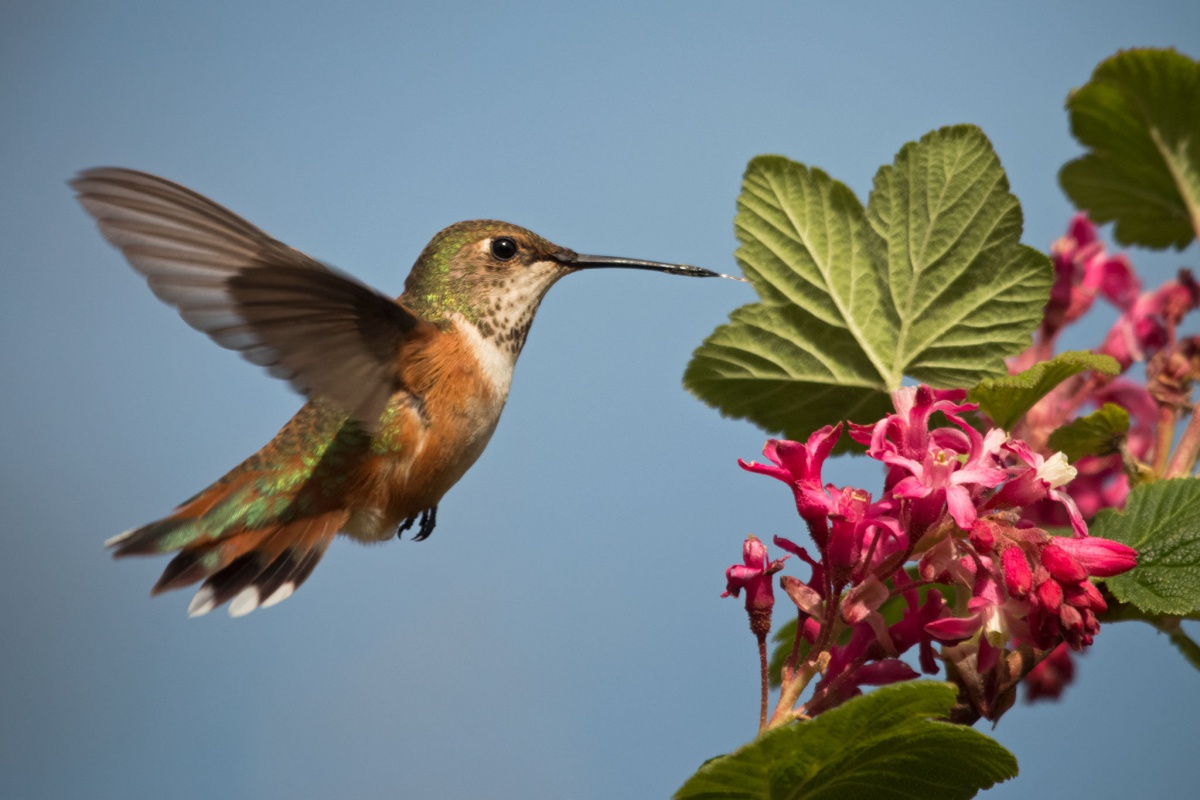 A Rufous hummingbird at Oregon Coast National Wildlife Refuge in Oregon. Photo by Peter Pearsall, U.S. Fish and Wildlife Service.
A Rufous hummingbird at Oregon Coast National Wildlife Refuge in Oregon. Photo by Peter Pearsall, U.S. Fish and Wildlife Service.
December 19, 2022 - Last week, the U.S. Fish and Wildlife Service launched the Center for Pollinator Conservation to address the decline of pollinator populations across North America. The national center will contribute science, provide decision support, and coordinate and share best practices with land managers for overcoming some of the biggest challenges facing pollinators.
“The Center for Pollinator Conservation will advance our existing conservation efforts and welcome all those interested in enhancing pollinator populations,” said Service Director Martha Williams. “Given the importance of pollinators to food security, opening this center will improve how we work as an agency, dedicate shared resources and provide a space where we can engage and unite with others to conserve pollinators.”
Secretary of the Interior Deb Haaland first announced the Service’s intent to launch the center as part of the inaugural Monarch Butterfly Summit in June 2022.
The center will initially launch as a virtual collaborative space and will focus on three key themes: highlighting the importance of pollinators, understanding and responding to threats and coordinating action to reverse declines. Anticipated work for the center’s first year includes conducting assessments on the current state of pollinator conservation and science across the U.S. Fish and Wildlife Service; listening to agency programs and other partners across the country about how the center might function, and what it might provide; and developing mid-and longer-term strategies for the center and its work, including the announcement of a physical hub for its operations.
During the past 30 years, the scientific and conservation communities have documented a steep decline of pollinator populations. Examples include the decline of the American bumble bee by 90%, the monarch butterfly by 80% and the Allen’s hummingbird by 88%. Pollinators face big challenges, like climate change , pesticide exposure and habitat loss. The center will work to amplify and add to the ongoing efforts to improve the state of pollinators.
Since 2015, the Service has dedicated more than $25 million to conserve pollinators, particularly the monarch butterfly. Establishing the center is another major investment to protect and promote pollinator health. The Service will continue to make pollinators a priority, share progress with interested parties and base decisions on the best available science.
The Service encourages federal and state agencies, Tribes, academia, non-government organizations and other interested parties to strategically align pollinator work and connect with the center. Embracing a diversity of groups interested in conserving pollinators will help everyone achieve broader pollinator successes.
Pollinators benefit from widespread, ongoing conservation actions, which help reduce threats. These efforts include planting native plants to provide pollinators food from flowers that bloom in spring, summer and fall, and avoiding or limiting use of pesticides by following label instructions.
We encourage those interested in partnering with the Center for Pollinator Conservation to contact Interim Center Director Kelley Myers at kelley_myers@fws.gov.
More information can be found online at: https://fws.gov/initiative/pollinators.
Source: USFWS








